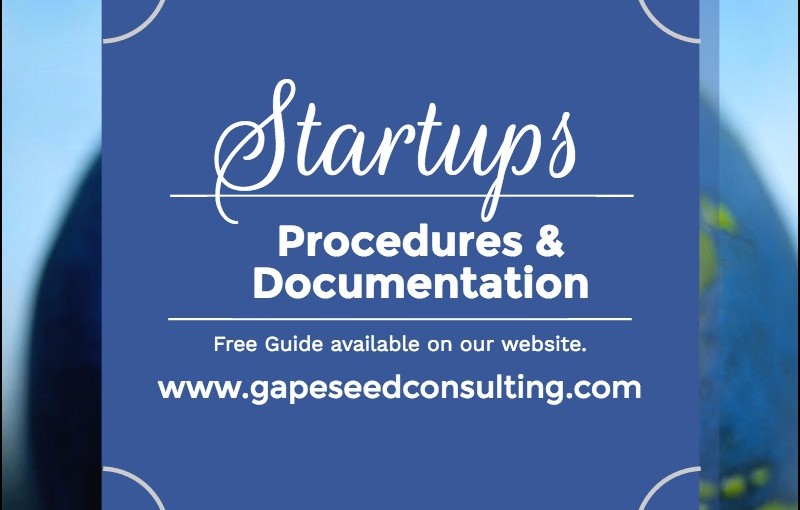In continuation to our previous blog on what the government has in bag for the startups this blog will take you through what the budget has which can help you make your startup successful.
Overview
With so many startups coming up now and then, the government has now realized that how significantly it can drive our social and economic growth of the nation. This has resulted into coming up with initiatives likes Digital India, Make in India, and Start Up India, Stand Up India.
In the Union Budget 2016-2017 though it has emphasized on different key areas like Agriculture, Rural Development and Infrastructure etc. but it didn’t stand up to the hopes of the entrepreneurs There is uncertainty whether union budget 2016-2017 would truly help India to startup and stand up?
Let’s start with what the government had in for the startups
According to the government notification, an entity will be identified as a startup.
- A time upto five years from the date of incorporation.
- The turnover has to be less than 25 crore in the last five financial years.
- It is working towards innovation, development, deployment, and commercialization of new products, processes, or services driven by technology or intellectual property.
Compliance Regime based on Self-Certification
- Compliance pertaining to 6 labour & 3 environmental laws will be allowed to be self-certified through the Startup mobile app.
- No inspections will be carried out under labour laws for a 3 year period.
- Startups classified as White Category as defined by the Central Pollution Control Board will be allowed self-certification under environmental laws, with only random checks proposed.
Relaxed Norms of Public Procurement for Startups
In order to provide an equal platform to Startups (in the manufacturing sector) vis-à-vis the experienced entrepreneurs/companies in public procurement, Government shall exempt Startups(in the manufacturing sector) from the criteria of “prior experience/turnover” without any relaxation in quality standards or technical parameters. The Startups will also have to demonstrate requisite capability to execute the project as per the requirements and should have their own manufacturing facility in India.
Funding Support through a Fund of Funds
Corpus of INR 10,000 crore: Initial corpus of INR 2,500 crore and a total corpus of INR 10,000 crore over a period 4years (i.e. INR 2,500 crore per year).
“Fund of Funds”: The Fund will be in the nature of Fund of Funds, which means that it will not invest directly into Startups, but shall participate in the capital of SEBI registered Venture Funds.
Credit Guarantee Fund for Startups
Credit Guarantee Fund would help flow of Venture Debt from the formal Banking System.
Corpus of INR 500 crore per year for the next four years: In order to encourage Banks and other Lenders to provide Venture Debts to Startups, Credit guarantee mechanism through National Credit Guarantee Trust Company (NCGTC)/SIDBI is being envisaged with a budgetary Corpus of INR 500 crore per year for the next four years.
Tax Exemption on Capital Gains
The Union Budget 2016-17 gave effect to the proposal made under the Action Plan with tax exemption regard capital gains as follows:
- Long term capital gains tax exemption: New Section 54EE inserted to provide long term capital gains tax exemption if capital gains proceeds are invested by an eligible tax payer in units of specified fund to be notified by the Central Government, subject to conditions. The maximum investment allowed upto INR 50 lakh.
- Budget proposes to amend Section 54GB to provide long term capital gains tax exemption arising on account of transfer of a residential property if such capital gains are invested in an eligible startup by way of subscription of share subject to the tax payer holds more than 50% shares and utilizes monies to purchase new asset. Further, the Budget proposes to amend the expression “new asset” to include computers or computer software in case of technology driven startups.
Tax Exemption to Startups for 3 years
The Union Budget 2016-17 gave effect to the proposal made under the Action Plan with regard to tax exemption to Startups for 3 years as follows:
New Section80-IAC inserted in the Income Tax Act, 1961 to provide 100% deduction of the profits and gains derived by an eligible startup from a business involving innovation development, deployment or commercialization of new products, processes or services driven by technology or intellectual property, for 3 consecutive years out of 5 years beginning from the year of incorporation. The said benefit is available to an eligible startup setup before April 2019. However, MAT will apply.
Tax Exemption on Investments above Fair Market Value
Purpose: To encourage seed-capital investment in Startups
Investments made by incubators in Startups proposed to be insulated from the rigors of Section 56(2)(viib) of the Income-tax Act, 1961. Any consideration received by Startups for issuance of shares over FMV to incubators, not to be taxed in the hands of the Startup.
Startup India Hub: The govt. would create a single point of contact for the entire Startup ecosystem and enable knowledge exchange and access to funding.
Rolling-out of Mobile App and Portal
The App shall be made available from April 01, 2016 on all leading mobile/smart devices’ platforms to provide the following services:
- Registering Startups with relevant agencies of the Government
- Tracking the status of the registration application and anytime downloading of the registration certificate.
- Filing for compliances
- Collaborating with various Startup ecosystem partners
- Applying for various schemes being undertaken under the Startup India Action Plan
Legal Support & Fast-tracking Patent Examination
Startup Intellectual Property Protection (SIPP) scheme will be introduced on a pilot basis for a one year period to facilitate filing of Patents, Trademarks and Designs. The scheme would include:
- Fast-tracking patent application.
- Setting up a panel of “Facilitators” who will advise on different Intellectual Property Rights (“IPR”)
Are bate of 80% on patent filing fees vis-à-vis other companies is proposed.
This was a quick synopsis which is useful for the startups or those who are planning to startup. Incase, you seek any further clarity or recommendations on your startup, feel free to write to us at, info@gapeseedconsulting.com
More Newsletters
Importance of Accounting for Startups
Tax Accounting Services for start-ups and small businesses
Start Up India Stand Up India Scheme





